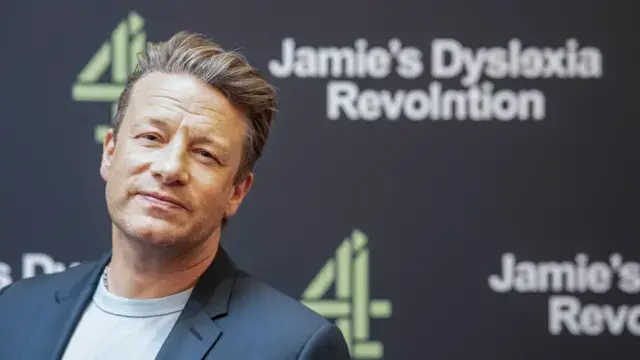The Dyslexia Revolution - What Will Change in Schools?
- Kate Baker

- Jul 2, 2025
- 3 min read
Celebrity chef, campaigner, and proud dyslexic Jamie Oliver is once again winning the hearts of parents across the country — but this time, it’s not about school dinners. With his new Channel 4 documentary The Dyslexia Revolution, Jamie is turning the spotlight onto the inequalities faced by children with dyslexia in the British education system.
In the programme, Jamie shares his own experiences of struggling at school and outlines his vision for change — a vision that many parents and educators have long been calling for.

What does Jamie Oliver want to change?
The first major step Jamie is campaigning for is dyslexia screening for all children in primary schools. His message is clear: early identification can make an enormous difference. Too many children go through school believing they’re “stupid” or “lazy” simply because their difficulties go unrecognised. With earlier screening, those children could access the right support sooner, helping to protect both their academic progress and their self-esteem.
The second key area he’s tackling is teacher training. Jamie believes that teachers work incredibly hard and care deeply about their pupils, but most simply don’t receive specialist training on how dyslexia affects learning, or how to support children effectively in mainstream classrooms. Better training means teachers can spot the signs of dyslexia earlier and make meaningful adjustments that help children thrive.
Is change really happening?
So far, Jamie’s campaign has made waves. He’s already met with key figures in the Department for Education to push for action, and there’s growing public conversation about how schools can — and must — do better for dyslexic learners. For families of children with dyslexia, this attention feels long overdue and incredibly validating.
But, as every parent knows, change in education can be slow. Policies take time to shift, training takes time to roll out, and for the children in classrooms right now — the need for support is immediate.
What can parents do in the meantime?
With end-of-year school reports landing in inboxes, many parents will soon be reading feedback that doesn’t reflect how hard their child has worked. For children with dyslexia, those reports can feel disheartening — and for parents, it can feel like yet another reminder that the system isn’t built with their child in mind.
But the summer holidays also bring an opportunity: a chance to help your child build skills and confidence, ready to face the new school year in a stronger position.
Support at home — no teaching experience required
If you’d like to help your child with their reading but feel unsure where to start, you might find the Reading Skills workbook series helpful.
Designed for parents, they require no specialist knowledge, include daily short lessons, and use a gamified, imagery-based approach that helps children learn without feeling overwhelmed. The goal isn’t just to improve reading — it’s to help your child feel confident and capable when they head back to school.
If you're interested in trying them, you can explore the workbooks here.
In the meantime, let’s keep the conversation going — because with awareness, practical tools, and the right support, we can all be part of the dyslexia revolution.
If you have any questions, message me on the chat box or email me at info@pictureprogress.com, I'd love to help! 👋





Comments